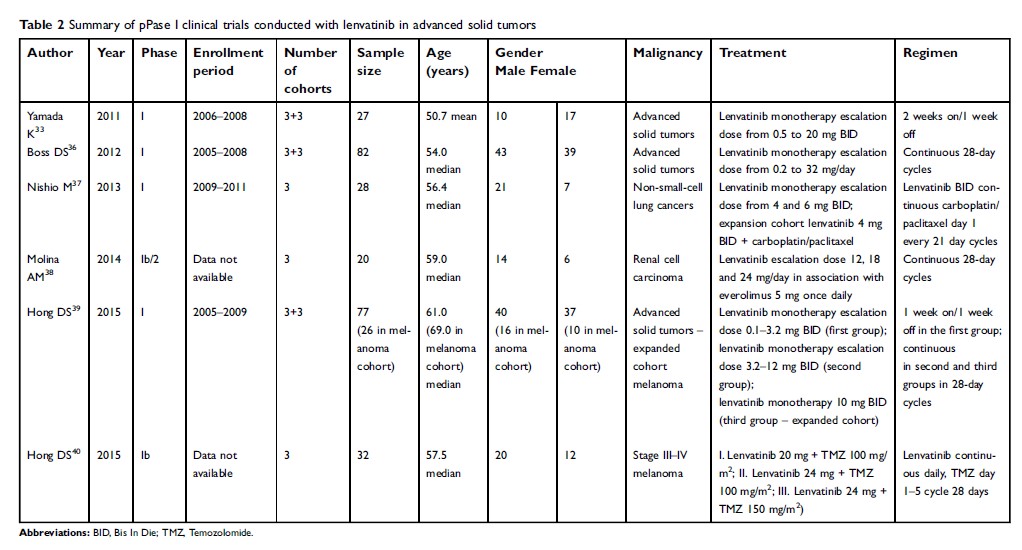9 1 2 3 6
论文已发表
注册即可获取德孚的最新动态
IF 收录期刊
- 2.6 Breast Cancer (Dove Med Press)
- 3.9 Clin Epidemiol
- 3.3 Cancer Manag Res
- 3.9 Infect Drug Resist
- 3.6 Clin Interv Aging
- 4.8 Drug Des Dev Ther
- 2.8 Int J Chronic Obstr
- 8.0 Int J Nanomed
- 2.3 Int J Women's Health
- 3.2 Neuropsych Dis Treat
- 4.0 OncoTargets Ther
- 2.2 Patient Prefer Adher
- 2.8 Ther Clin Risk Manag
- 2.7 J Pain Res
- 3.3 Diabet Metab Synd Ob
- 4.3 Psychol Res Behav Ma
- 3.4 Nat Sci Sleep
- 1.9 Pharmgenomics Pers Med
- 3.5 Risk Manag Healthc Policy
- 4.5 J Inflamm Res
- 2.3 Int J Gen Med
- 4.1 J Hepatocell Carcinoma
- 3.2 J Asthma Allergy
- 2.3 Clin Cosmet Investig Dermatol
- 3.3 J Multidiscip Healthc

Lenvatinib, a molecule with versatile application: from preclinical evidence to future development in anti-cancer treatment
Authors Capozzi M, De Divitiis C, Ottaiano A, von Arx C, Scala S, Tatangelo F, Delrio P, Tafuto S
Received 26 September 2018
Accepted for publication 28 February 2019
Published 1 May 2019 Volume 2019:11 Pages 3847—3860
DOI https://doi.org/10.2147/CMAR.S188316
Checked for plagiarism Yes
Review by Single-blind
Peer reviewers approved by Dr Colin Mak
Peer reviewer comments 3
Editor who approved publication: Dr Beicheng Sun
Abstract: Lenvatinib
is an emerging multi-kinase inhibitor with a preferential anti-angiogenic
activity, which has shown efficacy in the treatment of renal cell carcinoma,
differentiated thyroid cancer and hepatocellular carcinoma. It inhibits
vascular endothelial growth factor receptor family (VEGFR1–3), fibroblast
growth factor receptor family (FGFR1–4), platelet-derived growth factor
receptor–alpha (PDGFRα), tyrosine-kinase receptor (KIT) and rearranged during
transfection receptor (RET). In this review we have evaluated the development
from bench to bedside of lenvatinib. PubMed, MEDLINE and clinicaltrials.gov are
the sources of data. Furthermore, the preclinical in vitro and in vivo data, as
well as efficacy and toxicity results of lenvatinib in the clinic, are
presented and discussed. Treatment with lenvatinib causes side effects
(hypertension, proteinuria, fatigue and diarrhea), which are predominantly
related to the inhibition of angiogenesis. For these reasons, the
identification of biomarkers of efficacy and resistance to lenvatinib is a key
challenge in order to select responsive patients. This review provides an
overview on lenvatinib’s clinical use, perspectives and indications for future
development.
Keywords: angiogenesis,
kinase inhibitors, microvessel density, tumors
